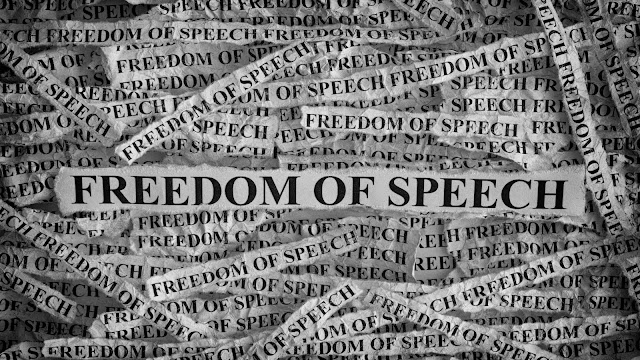Recently the idea of freedom of expression was put to test and as always we showed how little they understand about this rather basic tenet of democracy.
First,
an actress made a ridiculous claim about the manner in which India was liberated
from the British. An FIR was filed against the actress.
Second,
a comedian did a routine about the dual standards in India, An FIR was filed
against the comic.
Third,
a Delhi-based politician and lawyer wrote a book that made preposterous claims
about religion. His home was vandalized.
A
local leader who took offense to the portrayal of the manner in which his community
was portrayed in a recent film announced a reward to anyone who attacks the film’s
lead actor
Irrespective
of what you thought these ideas expressed, they were mere words uttered. There
was no call for violence and there was no violence.
The
Freedom of Speech and Expression is a fundamental right guaranteed to all citizens under the Constitution of India.
However,
the Constitution does not guarantee an absolute individual right to freedom of
expression. Instead, it envisages reasonable restrictions that may be placed on
this right by law.
Many
laws that restrict free speech such as the laws punishing sedition, hate speech, or defamation, derive their legitimacy from Article 19(2).
But these restrictions are flawed and are contrary to the principles of freedom.
What
is obscene to one may be artful to another. What is crass to one may be
hilarious to another. What is crude to one may be engaging to another. A hateful
to somebody may be compelling to another. What is seditious to one may be rebellious
and provocative to another. We allow the personal taste to dictate what
is permitted in any forum of ideas.
However,
If a state’s citizenry is not free to express themselves, then their other
civil and political rights are also under threat.
The
freedom of expression, however, is paramount to the working of democracy and
it includes the right to offend.
Freedom
of expression is the most important tenet of a functioning democracy. This
includes the right to opine, to criticise, to offend, to insult, to ridicule,
to satirize, to express hateful and obscene ideas, and to ridicule anything
under the sun including the state,
religion, public figures, the formidable fourth estate, and even the
almighty.
Most
importantly it is the healthy exchange and debate about diverse ideas, not echo
chambers, that facilitates progress as we learn to understand and empathize
with the opposing point of view. Also denying an individual his right to
express is denying yourself the right to be exposed to it.
Freedom
of expression emanates from freedom of thought and it is often these thoughts
that have led to change in society. All the great works of art, inventions, and
discoveries would have probably been impossible if someone somewhere, had not
dared to be different and more importantly dared to express this difference of
opinion without fear.
It
is this solitary contrarian voice that begins like a flickering flame but with
the support it results in illuminating everybody. If we become a society that
sticks to convention we cease to grow.
Most
importantly the only way to confront words is words. Engage in a debate and defeat
the individual on logic and fact. At times it is wise to ignore the provocateur
because these controversies make them more famous and even elevate
them to positions of leadership.
However, the overburdened legal system must not be misused to target these provocateurs.
But
as Justice
Oliver Wendell Holmes opined: "The most
stringent protection of free speech would not protect a man in falsely shouting
fire in a theatre and causing a panic.” In
other words, civility and public safety will
always govern the right to free expression.
Sticking
to the theme of famous quotes (perhaps clichés) English author Evelyn Beatrice
Hall, not Voltaire famously said: “I may disapprove of what you say, but I will
defend to the death your right to say it.”
One
would hope that these very profound words, the fundamental axiom of their being.

Comments
Post a Comment